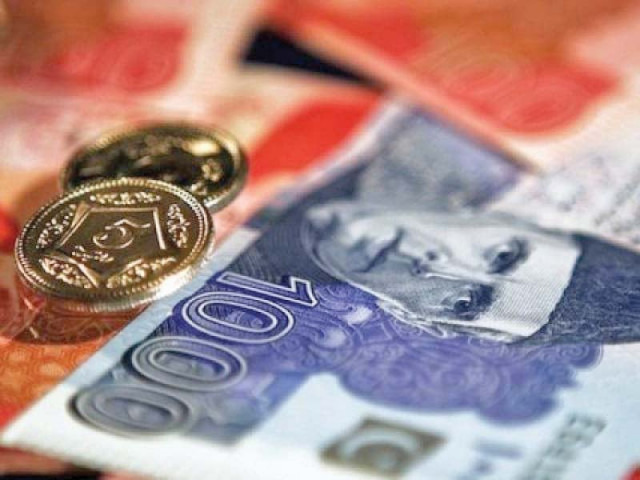Credit to private sector surges 4 times, amounts to Rs395b
Companies borrow funds to increase their working capital, says analyst

The government has borrowed Rs1.2 trillion in Jul-Dec 2018 compared to retiring Rs78.7 billion in the same period of last year. PHOTO: FILE
The trend, however, seems unsustainable as most of the borrowing is for the short term at a time when the cost of financing is at its peak.
The State Bank of Pakistan (SBP) reported on Wednesday that credit flow to the private sector surged four-fold to Rs394.9 billion during July-December 2018 compared to Rs102.8 billion in the same six months of previous year.
The central bank data suggested that textile was the solo sector of the economy borrowing heavily from banks apparently after the government announced an export package for the five zero-rated sectors, let the rupee depreciate substantially by 32% against the US dollar in the last 12 months, provided subsidised gas and considered subsidising electricity as well to revive sluggish exports, experts said.
Jul-Nov 2018: Pakistan receives only $1.7b in foreign loans
“They (textile manufacturers) are borrowing to expand their working capital,” Taurus Securities’ banking analyst Mustafa Mustansir told The Express Tribune. “The borrowing is for the short term which will normalise (slow down) in the months to come.”
Sometimes, companies raise funds to utilise their production capacity which had become idle due to a poor working environment earlier.
The cost of borrowing surged massively after the central bank increased the benchmark interest rate by 4.25 percentage points in the last 11 months to 10%. “This scenario does not allow even the textile manufacturers to make expensive borrowing for expansion,” he said.
Moody’s hints at downgrading Pakistan’s external credit rating
“Lending rate for the industry on outstanding loans jumped to 9.07% (up 20 basis points in November 2018), the highest since September 2015,” he said. Except for textile, all other sectors of the economy were seen retiring debt, he added.
Textile remains the largest export sector of the country, earning almost 60% of export proceeds per year.
“Government efforts may aid the export sector to enhance shipments by 8-10% in value, but 5-6% in volumes,” he said.
Sherman Securities’ banking analyst Chander Kumar added that many listed firms at the Pakistan Stock Exchange (PSX) are observed making short-term borrowing. The firms include Nishat (Chunian) Limited, Nishat Mills Limited, Sapphire Textile Mills Limited and Kohinoor Textile Mills Limited.
“The exceptional growth seen in credit to the private sector is unsustainable, as it remains short term borrowing,” he said. “The bank would also avoid making hefty lending to the industry to avoid booking losses (in shape of non-performing loans or NPLs) under the provided high interest rate regime.”
If the private sector makes borrowing for expansion it would face problems, he said.
Govt borrowing at peak
They said the government borrowing from the central bank has gone through the roof. The government has borrowed Rs1.2 trillion in six months compared to retiring Rs78.7 billion in the same period of last year.
The borrowing has increased circulation of currency exponentially in the system which would become a cause of projecting inflation, as the central bank has printed new currency notes to lend to the government.
Published in The Express Tribune, December 27th, 2018.
Like Business on Facebook, follow @TribuneBiz on Twitter to stay informed and join in the conversation.



















COMMENTS
Comments are moderated and generally will be posted if they are on-topic and not abusive.
For more information, please see our Comments FAQ